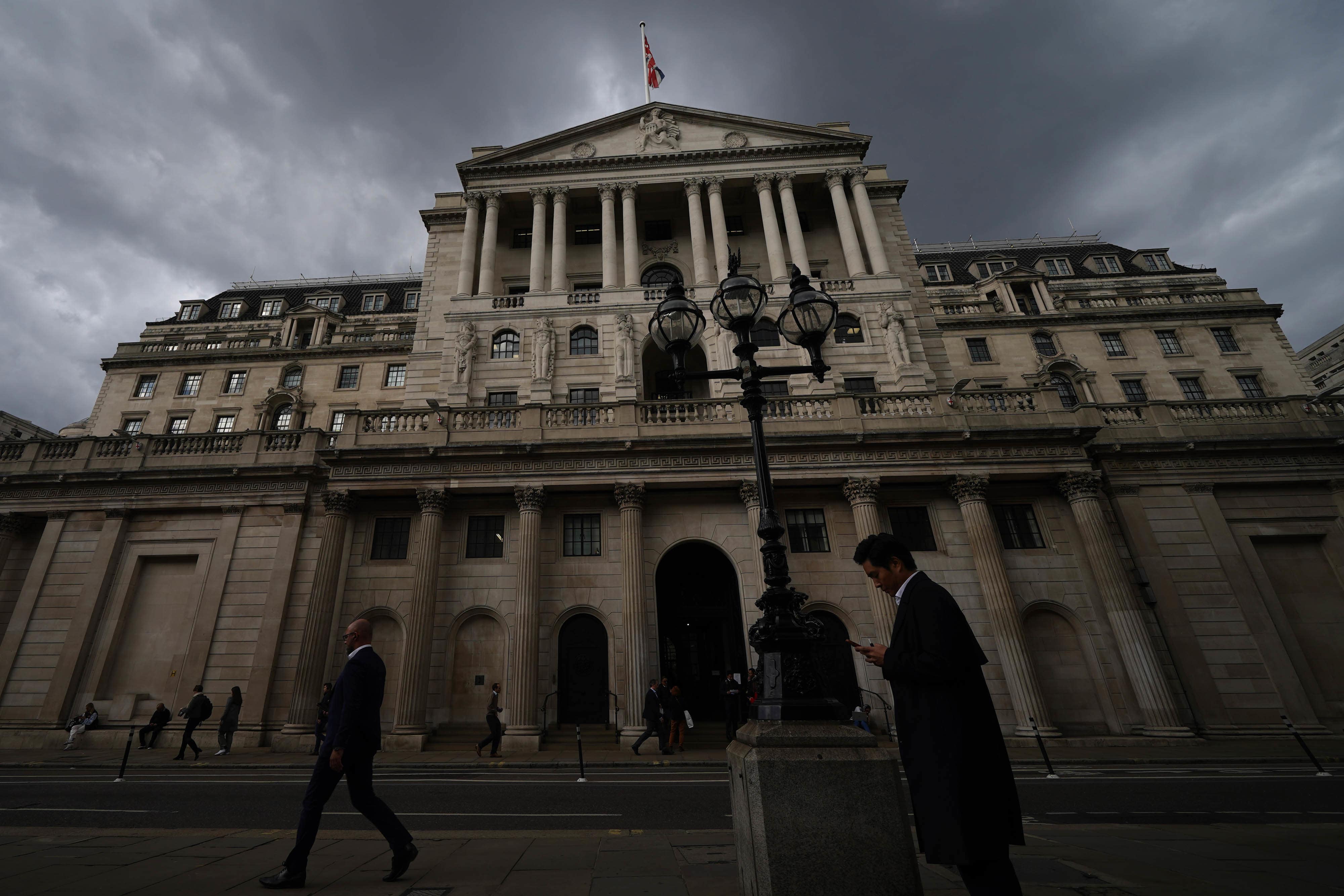Bank of England hikes interest rates to 4% but expects shallower recession
Decision makers on the Bank’s Monetary Policy Committee (MPC) opted to hike the base rate from 3.5% to 4%.

Your support helps us to tell the story
From reproductive rights to climate change to Big Tech, The Independent is on the ground when the story is developing. Whether it's investigating the financials of Elon Musk's pro-Trump PAC or producing our latest documentary, 'The A Word', which shines a light on the American women fighting for reproductive rights, we know how important it is to parse out the facts from the messaging.
At such a critical moment in US history, we need reporters on the ground. Your donation allows us to keep sending journalists to speak to both sides of the story.
The Independent is trusted by Americans across the entire political spectrum. And unlike many other quality news outlets, we choose not to lock Americans out of our reporting and analysis with paywalls. We believe quality journalism should be available to everyone, paid for by those who can afford it.
Your support makes all the difference.The Bank of England has raised interest rates for the tenth time in a row lumping further pressure on mortgage borrowers.
Decision makers on the Bank’s Monetary Policy Committee (MPC) opted to hike the base rate from 3.5% to 4%, to help bring down double-digit inflation.
The Bank said that the UK is still headed for a recession, but stressed that the economic downturn could be shallower and shorter than previously expected.
Peak-to-trough gross domestic product (GDP) is set to shrink by 1%, from around 3% in an earlier forecast.
This is because wholesale energy prices have fallen significantly since the MPC produced its last forecast, in November, and inflation has begun to fall from its peak last year.
The UK will suffer a recession of five consecutive quarters, starting in the first three months of 2023.
But the decline will be much softer than in previous recessions, such as during the 2008 financial crisis. A recession is defined as at least two consecutive quarters of falling output.
GDP is expected to fall by 0.5% over 2023, and by 0.25% in 2024, before picking up to almost 1% by 2025.
The outlook for the labour market has also improved, the MPC said.
The number of job vacancies is set to decline, and redundancies will remain low, as companies are less inclined to let staff go as quickly as they did in previous recessions, the Bank suggested.
The rate of unemployment is expected to peak at 5.25%, lower than the 6.5% that was previously forecast.
A lower rate of unemployment and therefore greater job security indicates that people have more confidence to spend.
Yet workforce participation has weakened as over-50s have been exiting the workforce since the pandemic, reports suggest.
The MPC said that some of these people look to be returning to the labour market, but many may not come back.
“The effects of the pandemic on potential participation are assumed to start to fade, but some effect persists beyond the end of the forecast period”, it said.
Markets expect interest rates to peak at 4.5% towards the end of this year, which is significantly lower than the 5.25% peak that had been forecast when the MPC met in the wake of the mini-budget.
Rates will then stay above 3.25% for at least the next three years, according to the forecast.
Seven members of the Bank’s nine-person MPC voted for the 0.5 percentage point rate hike, while two members voted to keep the base rate at 3.5%.
“If there were to be evidence of more persistent pressures, then further tightening in monetary policy would be required”, the MPC cautioned.
But it refrained from insisting it would respond “forcefully” to these pressures, as the committee has said in previous meetings.
The Bank said that average household energy bills will likely drop below £3,000 – the level of the Government’s price guarantee – from the start of July.
But it still thinks that gas prices will remain high for years to come. In 2025 gas prices will be around 136p per therm, compared to 52p on average between 2010 and 2019.